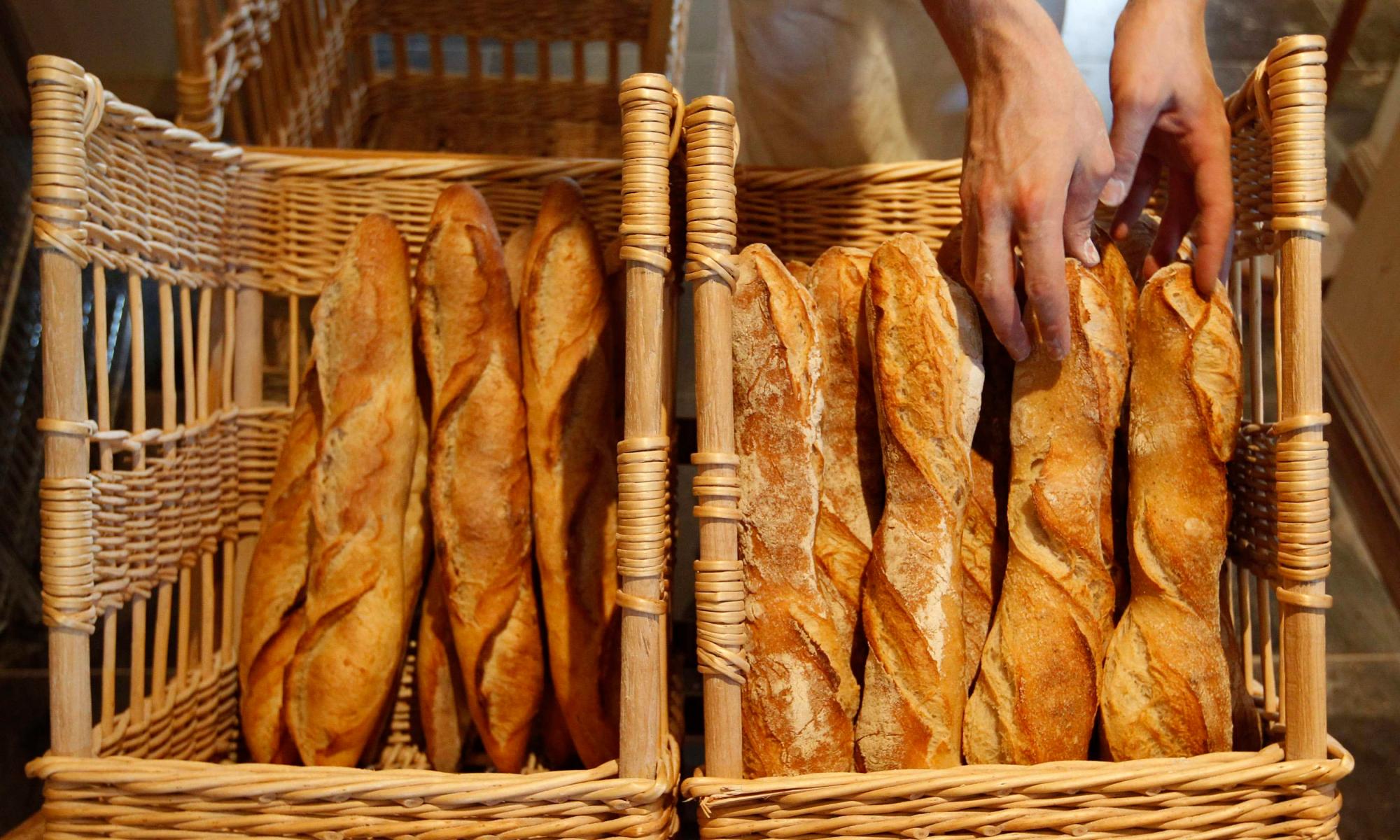
, is torn off on the way home. This is a romantic story, but it holds some truth about the esteemed role that bread and the baker hold in France – and it is partly what drew me, an English baker, to the country.
that “in a blind test you can’t tell which is which” between their frozen products and the unfrozen, artisanal equivalent. In France, frozen pastries and sweet baked goods accounted for a remarkable 24% of all pastries in 2021, higher than Britain and Spain.
Even the romance of that symbol of national identity, the baguette, is more complex under inspection. Originating as the bread of the Parisian bourgeoisie, it is a relatively expensive loaf to make, gram-for-gram. The space it takes up in the oven makes it more inefficient than a larger loaf to bake and, to achieve that desirable “glassy” crust, the labour-intensive shaping is done the same morning it is baked, tying bakers to gruelling night shifts. (This is not a new issue – one of the laws laid down by the Paris Commune of 1871 was to put an immediate stop to bakers’ night shifts.) Many of those working in traditional bakeries are apprentices; bakery owners often end up relying on and exploiting this underpaid workforce.
(as in, made by an artisan baker) it must have all of its breads made and baked on site – you won’t find any factory-made, pre-frozen loaves there. But it gives you no guarantees that the bakers don’t use pre-mixes and improvers in their products, which is a fairly common practice.
the link between increases in type 2 diabetes, gluten intolerance and gastrointestinal issues and the regular consumption of white, refined flour over more wholemeal alternatives. The long lacto-bacterial fermentation unique to the sourdough process, which helps break down the gluten and makes more of the vitamins and minerals available, are missing from a standard white, yeasted loaf.
I’m not trying to claim superiority for my home country, Britain. France is a much more agricultural country, meaning many more people have retained a connection to the land and have an understanding of what, say, wheat actually looks like. In France there are still many small-scale “peasant” farmers who have continued to cultivate plots of heritage wheat varieties and “population” wheats, offering biodiversity for the land as well as diversity in flavour (as opposed to the monoculture of “modern wheat”, which makes up the vast majority of wheat grown worldwide). Along with movements such as the Réseau Semences Paysannes (peasant seed network) and the Paysan Boulangers (farmers who make bread with their own wheat), they have worked successfully to preserve and proliferate old varieties of seeds and growing practices, inspiring farmers and growers worldwide.
In Britain, we mostly lost our heritage wheat varieties following industrialisation, including those that our forebears grew which had naturally adapted to the local climate and terroir. But in recent years the work of visionary plant-breeders and grain historians, such as Andy Forbes of Brockwell Bake in south London, John Letts of Lammas Fayre in Buckinghamshire and Andrew Whitley of Scotland the Bread, have filled in the gaps – they worked to “bulk-up” from handfuls of wheats taken from seed banks, bringing to bakers varieties of wheat that have been lying dormant for generations. Britain has seen a huge upturn in the number of small, independent bakeries that specialise in sourdough bread, learning not just from books and bakers overseas (notably in the United States and France), but also through experimentation and sharing of knowledge. In many ways, absent the rules and weight of tradition, there is more interesting bread being baked today in Britain than France.
But France still has so much to teach us – namely caring about the right to access something that gives you daily joy. Who can’t say that a warm baguette torn and eaten with butter isn’t one of life’s greatest pleasures? And also that bread is about the baker themselves – someone who nourishes their communities and can provide a tangible link between the people and the land.


Post a Comment
0Comments